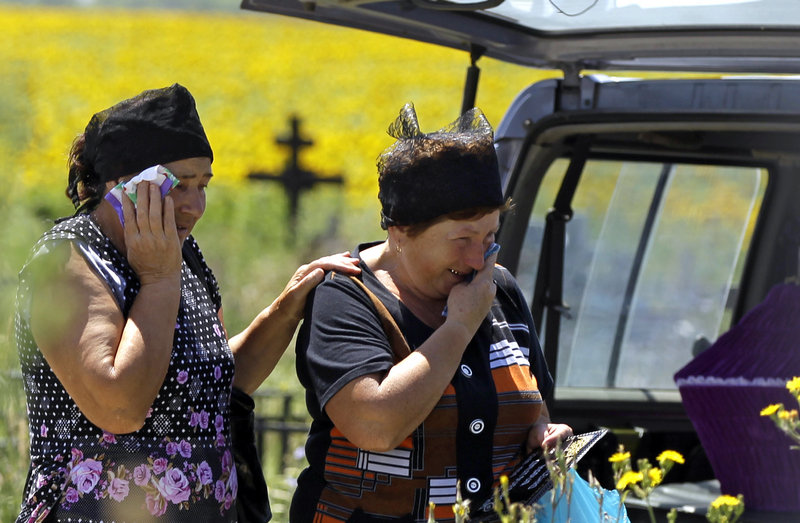KRYMSK, Russia – The floods that washed through southern Russia and killed 171 people followed storms that dumped five months worth of rain in a matter of hours. Still, President Vladimir Putin has spent three days trying to persuade residents that the flooding was an act of nature and not the result of government negligence or worse.
Some persist in believing, against all evidence, that the city of Krymsk and its 57,000 people were intentionally sacrificed to prevent the floodwaters from damaging Novorossiysk, a major Black Sea port essential for exporting Russian oil and grain.
This deep distrust of the government poses a challenge to Putin, who depends on the support of ordinary Russians across the country to counter the growing challenge in Moscow to his 12-year rule.
At the very least, the flooding has Russians once again questioning the government’s ability to keep them safe.
The Emergencies Ministry acknowledged Monday that it had failed to warn residents about the flash flood that turned Krymsk streets into swirling muddy rivers and filled one-story homes practically to the ceiling in the middle of the night. Many of the 171 who died were elderly residents unable to escape in time.
A total of 29,000 people in Krymsk and the seaside resort town Gelendzhik lost all of their possessions, and about 300 homes in Krymsk and 100 in Gelendzhik were damaged beyond repair, according to government figures released Monday.
After torrential rains dropped up to 12 inches of water late Friday and early Saturday, the flooding inundated Krymsk so quickly that residents said they suspected the water had been intentionally released from a reservoir in the mountains above the city to prevent the dam from being breached.
The government denied that the sluices had been opened and, in an effort to convince the skeptics, the Krasnodar region governor arranged for a group of residents to fly over the reservoir in a helicopter. Two members of the group were shown on television saying they were now convinced that the reservoir had not been the source of the flooding.
This was the same conclusion reached by a well-known local environmentalist.
Still, prominent Moscow journalist Oleg Kashin said that none of the residents he had spoken to believed it was the weather alone that caused the flooding.
“It’s not that the government’s version of the events differs from that of the victims, but the thing is that it’s normal in Russia to distrust authorities in everything — be it a natural disaster, elections or soccer,” Kashin said. “You have to agree that this will not make this crisis of confidence go away.”
Send questions/comments to the editors.



Success. Please wait for the page to reload. If the page does not reload within 5 seconds, please refresh the page.
Enter your email and password to access comments.
Hi, to comment on stories you must . This profile is in addition to your subscription and website login.
Already have a commenting profile? .
Invalid username/password.
Please check your email to confirm and complete your registration.
Only subscribers are eligible to post comments. Please subscribe or login first for digital access. Here’s why.
Use the form below to reset your password. When you've submitted your account email, we will send an email with a reset code.